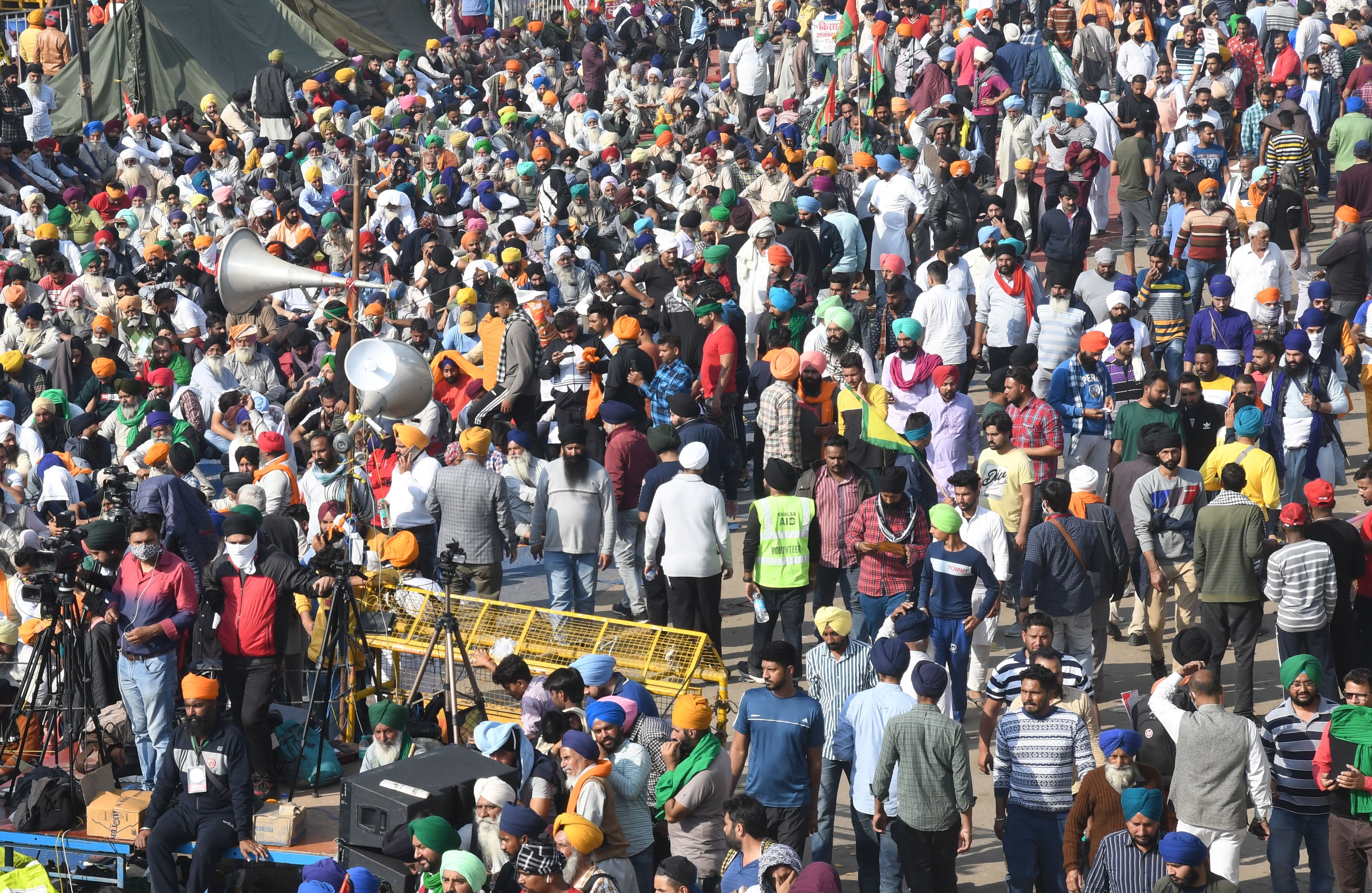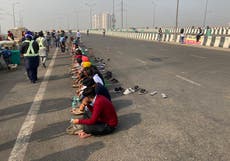Top Indian official blames country being ‘too much of a democracy’ for slowing down reforms
Policy chief later claims he was talking about size of country and resources being ‘spread thin’, but critics on Twitter are having a field day

Your support helps us to tell the story
From reproductive rights to climate change to Big Tech, The Independent is on the ground when the story is developing. Whether it's investigating the financials of Elon Musk's pro-Trump PAC or producing our latest documentary, 'The A Word', which shines a light on the American women fighting for reproductive rights, we know how important it is to parse out the facts from the messaging.
At such a critical moment in US history, we need reporters on the ground. Your donation allows us to keep sending journalists to speak to both sides of the story.
The Independent is trusted by Americans across the entire political spectrum. And unlike many other quality news outlets, we choose not to lock Americans out of our reporting and analysis with paywalls. We believe quality journalism should be available to everyone, paid for by those who can afford it.
Your support makes all the difference.The head of India’s government policy think tank sparked a backlash on social media after he appeared to suggest extensive reforms were difficult to achieve in India as the country is “too much of a democracy”.
Amitabh Kant, chief executive of the Niti Ayog agency, was speaking as farmers protest across India against attempts to reform the agricultural sector and open it up to private market forces.
Mr Kant, who was addressing a live-streamed online forum, praised the Narendra Modi-led government for showing “courage” to pursue major structural reforms.
“So tough reforms are very difficult in the Indian context, we are too much of a democracy. For the first time, the government has had the courage and the determination to carry out very hard-headed reforms across sectors… mining, coal, labour, agriculture… these are very, very difficult reforms” video of the event shows Mr Kant as saying.
“You needed a huge amount of political determination and administrative will to carry out these reforms which are being done.”
Mr Kant has since clarified that he was talking about India’s sheer size and “resources being spread thin", rather than commenting on the country’s political system.
After he tweeted at the major daily newspaper the Hindustan Times’ coverage of his comments, saying it was “definitely not what I said”, the HT deleted its tweet and removed its article online.
But the video of his remarks was still widely shared on social media and prompted a backlash as people shared memes and criticism under the hashtag #TooMuchDemocracy.
Mr Kant was speaking at an online event entitled “The Road to Atmanirbhar Bharat (a self-reliant India)”, and had been asked if the central government’s recent reforms in the manufacturing sector amid the pandemic gave it country the opportunity to lead on the world stage.
Mr Kant responded that “it is not easy to compete with China” and become a manufacturing nation if “hard-headed” approaches are not taken. He said such tough reforms are being taken for the first time in India.
Critics of the government jumped on the “too much of a democracy” line, however, sharing sarcastic tweets alongside pictures from the ongoing farmer protests, snapshots from the Delhi riots in February and reports about India slipping down the rankings of the global Democracy Index.
The comments came as thousands of farmers from Punjab and Haryana state have been protesting against the new farm laws passed by the government. The protest has been going on unabated for over 14 days on the outskirts of the national capital, with farmers demanding a reversal of the new laws or a fresh law guaranteeing minimum prices for their produce.
India dropped down 10 places to 51st position on the 2019 Democracy Index's global ranking, according to The Economist Intelligence Unit. The fall was attributed to the "erosion of civil liberties" in the country.




Join our commenting forum
Join thought-provoking conversations, follow other Independent readers and see their replies
Comments